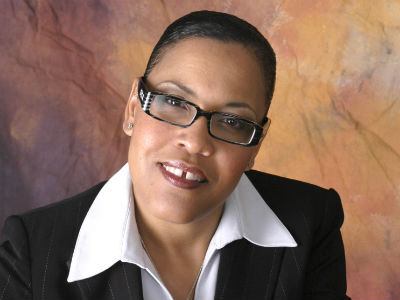Ousted Bangladesh leader's son says only an inclusive election could stabilize the country
News > Politics & Government News

Audio By Carbonatix
5:34 AM on Thursday, October 23
By JULHAS ALAM
DHAKA, Bangladesh (AP) — The son of Bangladesh's ousted Prime Minister Sheikh Hasina has called on the country's interim government to lift a ban on Hasina's party, saying an election that excludes it would be a sham.
In an interview with The Associated Press on Wednesday, Sajeeb Wazed said Bangladesh would remain politically unstable if the current interim government, headed by Nobel Peace Prize laureate Muhammad Yunus, fails to hold an inclusive election.
“This ban has to be lifted, the elections have to be inclusive and free and fair,” Wazed, who was a former adviser to the government headed by her mother, told the AP from Washington D.C.
“What is happening now really is an attempt to keep my mother and our political leaders from running in elections. This is political manipulation disguised as justice,” he added.
Bangladesh is expected to hold an election in February 2026. It will be the first polls in the South Asian nation since a student-led uprising ousted Hasina last year, ending her 15-year rule and forcing her to flee to India, where she has been in exile since.
Three days after her ouster, Yunus took the helm and promised to restore order and introduce reforms.
In May his government banned the activities of Hasina’s Awami League party and arrested many of its senior leaders. Many others, including former Cabinet ministers, fled the country to neighboring India and elsewhere. Hasina and all her immediate family members, including Wazed and his sister, face charges ranging from crimes against humanity to corruption.
Six rights groups, including Human Rights Watch and the Committee to Protect Journalists, issued a letter to Yunus last week urging an end to the "broad ban” on Awami League’s activities, saying it “excessively restricts freedom of association, assembly, and expression and has been used to arrest Awami League members and perceived supporters engaged in peaceful activities.”
Wazed, who has been living in the U.S. for last 30 years, said that if the Awami League party is not given enough time to prepare for the election the results “will not be recognized by the people of the country, by international observers.”
“We are not allowed to conduct any election preparation. So even if the ban is lifted at the last minute, the elections will be a sham,” he said.
Bangladesh, a parliamentary democracy of 170 million people, has 52 registered political parties. The fall of Hasina's government last year has hindered the democratic transition of power, and its politics remained at a crossroads.
The Bangladesh Nationalist Party, headed by Hasina’s main political rival and former Prime Minister Khaleda Zia, is the main contender in the next election. Another major party, Jatiya Party is not allowed to operate openly, with its party headquarters attacked and burned down and its rallies routinely thwarted.
Bangladesh’s political landscape is also more fragmented than before after the country’s largest Islamist party, the Jamaat-e-Islami, returned to politics more than a decade after it was suppressed by Hasina’s government. Over the last year, it has significantly expanded its presence and is attempting to build an alliance with other hard-line Islamist groups and parties.
Wazed said Islamists would gain if Bangladesh remains unstable. He blamed Yunus for backing them and planning a “rigged election” to bring them to power.
The interim government did not immediately comment.
Wazed acknowledged some initial “mistakes” from the Hasina government, which has been accused of brutally cracking down on the protesters, but disputed a United Nations report saying up to 1,400 people may have been killed during the uprising. He cited a statement from a health adviser under Yunus, saying that about 800 people were killed.
Wazed said all the deaths were “regrettable” and needed thorough investigation, but questioned the Yunus-led government's decision to grant immunity to the protesters involved in last year’s violence. He also accused Yunus' government of initiating a witch-hunt against Hasina, who has been charged of crimes against humanity.
Last week, a prosecutor in a special domestic tribunal in Bangladesh sought the death penalty for Hasina. She did not appoint any lawyers to represent her, and she had earlier rejected the trial process as a “kangaroo court.”
Wazed also accused the Yunus government of violating human and political rights, saying tens of thousands of Awami League party supporters have been jailed for over a year and denied bail, with many of them charged with murder. He claimed some 500 Awami League activists have been murdered since the uprising, mostly by mobs, and 31 party activists have died in custody.
“The human rights record of this regime is brutal,” Wazed said, adding that the country's religious minorities, especially Hindus, are a prime target.
The interim government had earlier denied such allegations of harassing minorities.









